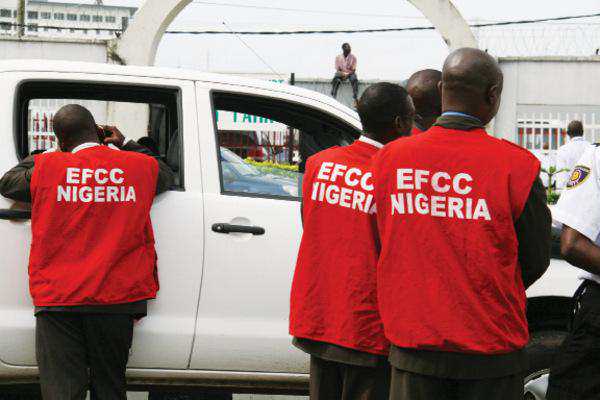If there is one thing that ushered in the administration of President Muhammadu Buhari and gave it the overwhelming mandate of Nigerians, it is the campaign rhetoric of dealing with the monster stunting the growth of Nigeria – corruption. It was a campaign tool that hinged on the most critical issue of the moment, after the raging wave of insecurity. Though Nigerians have not seen it as clearly as from what has been revealed in the past few weeks, the hemorrhage suffered by the country was discernible. The audacious display of wealth by a section of the high society, and the increasing gulf between the haves and the have-nots were too glaring to ignore. Those were manifestations of corruption.
That rhetoric of fighting corruption Nigerians bought from the then All Progressives Congress, APC, candidate is now being translated into real action. Since its inauguration, the government has demonstrated readiness in strangling the goats, to use the social media parlance, into vomiting the yam they savoured under the last dispensation and beyond.
The first sign of things to come was the constitution of a powerful committee by the National Security Adviser (NSA) Major General Babagana Munguno (rtd). The committee, which is charged with investigating arms purchase deals from 2007 to date, is made up of seasoned retired and serving military brass. However, it has an exception. It has one non-military personnel as member. That is Mr. Ibrahim Magu, the recently appointed acting chairman of the Economic and Financial Crimes Commission (EFCC).
News reports had it that Magu’s outstanding performance as a member of that committee propelled him as one that can give life to this government’s anticorruption crusade. Thus, he was appointed to head what has become a rather moribund anti-graft agency. Suddenly, EFCC is back to life. The commission is back on the front burner and personalities that are otherwise sacred cows have been bundled into its detention facilities.
The fear that there is repercussion for feasting on the public purse is quickly creeping back. There is jitters in the land especially among the people that had engaged in questionable activities to defraud the country. This is needed. In fact, for me, it is more important than jailing culprits when it comes to fight against corruption. It is absence of feelings like this breeds impunity, the precursor to anarchy. When offenders feel that there is one watching over them and no one will do anything to reprimand them for their offence, chaos sets in. it is in this context that one would have to view the happenings within the anticorruption space in recent times.
In the last one month, Nigerians have heard series of revelations on the plundering of our commonwealth, in what can be best described as man’s inhumanity to man. We heard of how funds meant to procure arms to fight the menace of Boko Haram insurgency were diverted and converted into campaign slush funds. Instead of arms purchase, we learnt, the sum of $2.1 billion served as avenue of dispensing political patronage either by way of unexplainable payments or funny ones like the N4 billion paid a politician for the purpose of conducting prayer!
But in all these, the succor is that the new man at the EFCC has evidently come with some gravitas and vigour to tackle the mess. From the way EFCC has become a beehive of activities overnight, it is evident that Magu is coming on the job prepared to take on the issues head on. In doing this, the man, we are told, is on a familiar terrain. His reputation as a fearless and thoroughbred investigator since the formative days of the EFCC has come to bear on him now that he has the proverbial horse and the pitch at his bay.
In the arms purchase scandal alone, the EFCC has arrested no less than 10 persons. This is in addition to other high profile investigations going on, notably the Malabu oil scandal involving senior officials of the previous administration. The intriguing Malabu scandal is something akin to the Halliburton scandal of yore. Like the Halliburton, the Malabu deal involved many highly placed personalities. But in terms of brazenness, the Malabu deal would go down as legendary considering that it was a case of direct stealing – selling off a public asset and diverting the proceeds to accounts of individuals.
However, arrest and interrogation are not the beginning and end of a corruption case. They are the starting points. It is heartwarming that EFCC has already started filing charges against those accused of eating the poisoned pie. But the greater work is ahead and it is going to be determined by both internal and external factors. Internally, the commission has to work on the cases thoroughly and build on strong cases.
Only last Wednesday, Vice President Yemi Osinbajo was reported as lamenting poor handling of cases by EFCC often ending in dismissal of the cases. Some of these hindrances are sometimes caused by internal sabotage as the virus of corruption is rearing itself into some undesirable elements within.
– Balogun writes from Katempe Estate, Abuja

